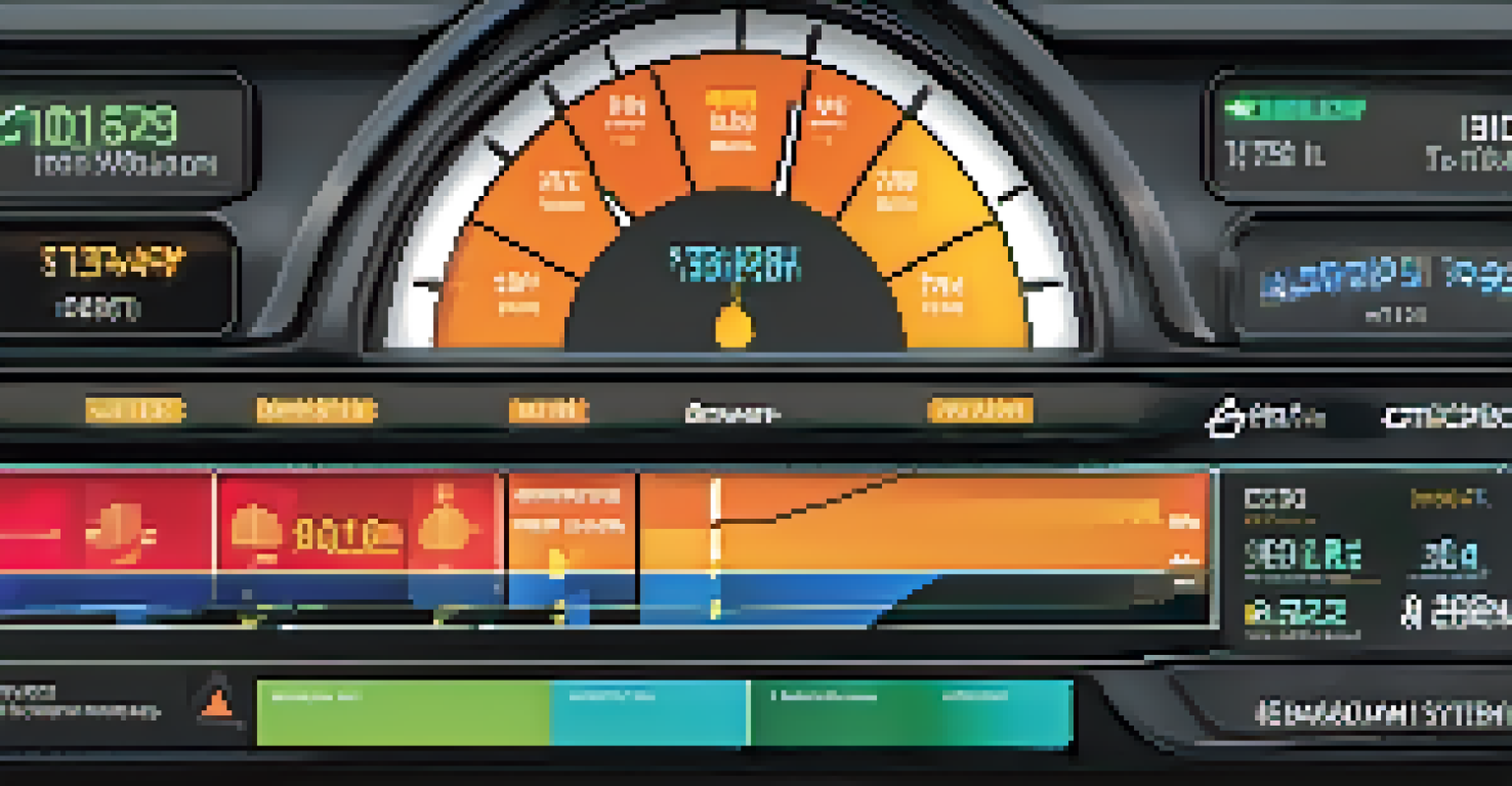Telematics and Insurance: Benefits for Fleet Operators

Understanding Telematics in Fleet Management
Telematics refers to the integration of telecommunications and monitoring systems, particularly in vehicles. For fleet operators, it provides real-time data about vehicle location, speed, and driver behavior. This technology empowers managers to make informed decisions, improving overall fleet efficiency and safety.
Data is the new oil. It’s valuable, but if unrefined, it cannot really be used.
By utilizing telematics, fleet managers can monitor fuel consumption, track vehicle maintenance needs, and even analyze routes. This data-driven approach allows for optimization of operations, reducing unnecessary costs and enhancing service delivery. In essence, telematics is like having a GPS and a mechanic combined, guiding you toward better performance.
Moreover, the insights gained from telematics can significantly influence insurance premiums. Insurers are increasingly recognizing the value of data and analytics, which can lead to more competitive rates for fleets demonstrating safe driving habits and efficient operations.
The Role of Telematics in Insurance Premium Reduction
One of the most appealing benefits of telematics for fleet operators is the potential for reduced insurance premiums. Insurance companies often reward businesses that can demonstrate low-risk behaviors through telematics data. For example, if a fleet consistently shows safe driving patterns, insurers may lower premiums based on this reduced risk.

Additionally, telematics can help fleet operators identify high-risk behaviors, such as harsh braking or rapid acceleration. By addressing these issues, companies can not only improve safety but also show insurance providers their commitment to risk management. This proactive approach can further enhance the possibility of premium discounts.
Ultimately, using telematics as part of an insurance strategy can lead to significant cost savings. Fleet operators can leverage this technology to negotiate better terms with insurers, creating a win-win scenario for both parties.
Improving Safety with Telematics Data
Safety is paramount in fleet operations, and telematics plays a crucial role in enhancing it. With real-time monitoring, fleet managers can track driving behaviors and intervene when necessary. For instance, if a driver frequently exceeds speed limits, managers can offer additional training or support to mitigate this risky behavior.
In the world of business, the rearview mirror is always clearer than the windshield.
Telematics systems also provide insights into vehicle maintenance, alerting operators to potential issues before they escalate. This preventative approach not only ensures the safety of drivers but also reduces the likelihood of accidents caused by mechanical failures. Think of it as a health check-up for your fleet, helping to keep everything in top shape.
By prioritizing safety through telematics, fleet operators can reduce accident rates, which in turn leads to fewer claims. This not only protects the well-being of drivers but also positively impacts insurance costs, creating a more sustainable business model.
Enhancing Driver Accountability and Performance
Telematics fosters a culture of accountability among drivers, encouraging them to adopt safer driving practices. When drivers know their behavior is being monitored, they are more likely to adhere to company policies and regulations. This can lead to improved performance and a more professional driving attitude overall.
Moreover, telematics systems often include features such as driver scorecards, which provide feedback on performance metrics. This gamification of driving can motivate drivers to improve their scores, leading to a healthier competitive spirit within the fleet. It’s like having a fitness tracker, but for driving habits!
As drivers become more accountable for their actions, the entire fleet benefits. Improved driving behaviors not only enhance safety but also contribute to lower fuel costs, reduced wear and tear on vehicles, and ultimately, lower insurance premiums.
Streamlining Claims Processing with Telematics
In the unfortunate event of an accident, telematics can simplify the claims process significantly. The data collected during the incident can provide insurers with crucial information, such as speed at impact and braking patterns. This allows for a more accurate assessment of the situation and speeds up the claims handling process.
Additionally, having access to real-time data can help fleet operators provide evidence to support their claims. This detailed information can help resolve disputes and clarify liability, making the process much smoother. It’s like having a digital witness right there with you!
By streamlining claims processing, telematics can reduce downtime for fleet operators. Faster resolutions mean that vehicles can return to service sooner, minimizing the financial impact of accidents and ensuring continuity in operations.
Optimizing Fleet Operations Through Data-Driven Insights
Telematics enables fleet operators to harness the power of data to optimize their operations. With insights into route efficiency, fuel consumption, and vehicle performance, managers can make informed decisions that drive productivity. For instance, identifying the most fuel-efficient routes can lead to significant savings over time.
Moreover, telematics can help in planning maintenance schedules by analyzing vehicle usage patterns. This predictive maintenance approach ensures that vehicles are serviced at the right time, reducing the likelihood of breakdowns and extending their lifespan. It’s all about being proactive rather than reactive.
As a result, an optimized fleet not only operates more efficiently but also benefits from reduced operational costs. This enhanced performance can lead to a stronger bottom line, allowing businesses to reinvest in other critical areas.
Future Trends in Telematics and Fleet Insurance
The future of telematics and insurance for fleet operators looks promising, with advancements in technology continually shaping the landscape. Emerging trends include the integration of artificial intelligence (AI) and machine learning to predict and analyze driver behaviors more accurately. This could lead to even more personalized insurance options based on individual driving habits.
Additionally, the rise of connected vehicles opens up new avenues for data collection. Fleet operators will have access to more comprehensive information, allowing for better risk assessments and tailored insurance solutions. Imagine a world where your insurance adapts in real-time based on your driving conditions and behavior!

As these technologies evolve, fleet operators can expect to see even greater benefits in terms of safety, efficiency, and cost savings. Staying ahead of these trends will be crucial for businesses looking to optimize their operations and insurance strategies in the future.